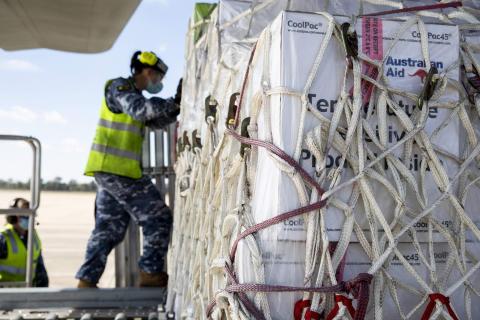
Suva, Fiji.
A key facet of the Australian Government's aid and development policy for the Pacific island region is enhancing private sector engagement. However, the detail of this policy has yet to be articulated. The role of the private sector in aid and development is the subject of an ongoing inquiry by the House of Representatives' Joint Standing Committee on Foreign Affairs, Defence and Trade. So now is a good time to pose some key questions that may add to current thinking and assist in identifying opportunities and risks.
Whose private sector?
'Engaging with the private sector' is a broad formulation. It remains somewhat unclear to what extent this engagement is intended to be with Australian private sector players, the private sectors of the Pacific, or both.
With the obvious exception of PNG and very small inroads elsewhere (and leaving aside obvious examples such as ANZ and Westpac), Australian companies are not present in the private sectors of the region in meaningful terms. While there may be advantages to encouraging Australian companies to set up shop in the larger economies of South East Asia, the reality in Pacific island countries — with the notable exception of PNG — is that markets are generally too small to be attractive or to justify set-up costs. [fold]
It is to be hoped that the envisaged private sector engagement comprises elements designed for 'home grown' businesses, and there are indications that this will be the case. While visiting the region late last year, Foreign Minister Julie Bishop announced an allocation of $15 million over five years to the Pacific Business Fund to provide business advisory services to over 250 companies in the region.
It is important to be clear that what 'works' for the private sector in Australia will not necessarily work for private sector operations in the Pacific. Perhaps more importantly, the approach to private sector engagement in one Pacific island country will not necessarily be appropriate in another. A number of factors are likely to affect what type of engagement is going to be best in each environment, including national investment policies and procedures, legal frameworks and regulatory requirements for business registration and operations.
Can or should the private sector 'do development'?
Is it good practice for private sector organisations to be given money from the aid budget in order to pursue 'for profit' activities in the hope that they will also deliver development outcomes?
Many Pacific island business already 'do' development. The terminology they use may differ from mainstream 'development speak', and the drivers of business may be different, but development objectives are most certainly achieved. Providing regular employment over a long period of time leads to improved livelihood for workers and their families, including increased access to education, health services and more.
However, it is hard to assess this impact either in any one country or across the Pacific island region. This is partly because the private sector is exactly that, private. In addition, the costs associated with collecting this information are high compared to the amount of data collected, owing to the small size of the formal business sector in each country.
Who should Australia be talking to?
Engagement with the private sector is not new either globally or in the Pacific island region. Numerous players already have runs on the board, including Pacific Islands Trade and Invest, the Asian Development Bank, the International Finance Corporation and the European Union, each of which have run several activities receiving co-financing from Australia and/or New Zealand. They have good information to share, based on experience and networks in individual countries. Australia has learning of its own to add from previous activities in this area, including the pilot Enterprise Challenge Fund for the Pacific and SE Asia, which concluded recently.
As the drive for private sector engagement moves from policy articulation to implementation, we would hope to see a real commitment to donor integration and cooperation, as envisaged by the Cairns Compact. Private sector entities in the Pacific island region have small management teams (often the senior management is one person) so there is limited capacity and tolerance for accommodating multiple teams of consultants scoping, designing, monitoring and evaluating the (apparently) same thing.
There is much to be achieved in the area of private sector engagement with aid and development. With good preparation and a willingness to learn and collaborate, the Australian aid program can make a good contribution.
Disclosure: the author was Country Manager (Vanuatu) for the Enterprise Challenge Fund for Pacific and SE Asia 2008-2010.
Photo by Flickr user kyle post.
